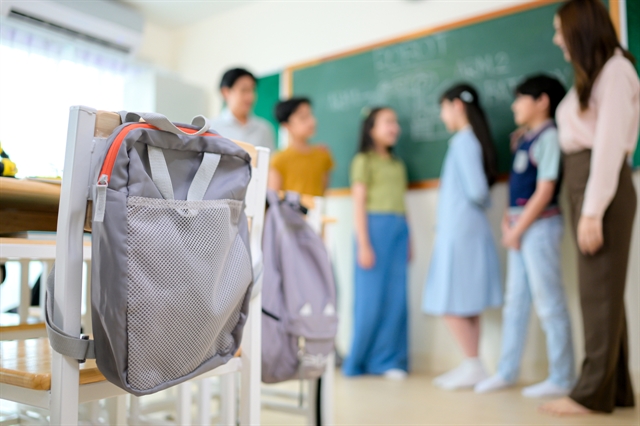 World
World


|
| The number of people residing in South Korea who are not natural-born citizens reached an all-time high in 2023, recording almost 2.5 million. — THE KOREA HERALD/ANN Photo |
SEOUL — South Korea's Ministry of Education announced Tuesday that it would provide more resources to enhance public education for students with foreign parents or nationality, particularly in schools with many such students.
Hoping to provide quality education for children born with at least one foreign parent and to those with foreign nationality, the ministry plans to increase the number of teachers in schools with a high concentration of multicultural students, hire more bilingual instructors, and employ outstanding international college students as mentors.
Schools where at least 30 per cent of students or more meet this definition will be considered as having a high concentration, according to the education ministry. The schools must have at least 100 students in total enrolled to qualify.
Teachers who work in those schools will receive training to develop a comprehensive understanding of diversity and enhance cultural awareness via exchange programs with overseas teachers, mid- and long-term overseas training programs and a nationwide network through which teachers can share their experiences.
The ministry added that it plans to use the AI Digital Textbook system to present customised Korean language-learning content for foreign and multicultural students according to their levels of Korean proficiency.
The education ministry’s announcement came as South Korea sees a growing number of foreign and multicultural school students, from 67,000 in 2014 to almost 200,000 in 2024, along with a steep rise in the number of foreign residents, according to the Ministry of Interior.
The number of people residing in South Korea who are not natural-born citizens - including those without Korean nationality, those who have obtained citizenship but are not ethnically Korean, and children born in Korea to foreign national parents - reached an all-time high in 2023, recording almost 2.5 million. The number of schools with a high concentration of multicultural students has risen as well.
The ministry believes that schools with an overly high concentration of new foreign and multicultural students might encounter challenges in providing them with a quality learning environment to study both Korean language and culture.
As a result, it decided to review existing policies to lower the concentration of multicultural students in certain schools by promoting opportunities for them to enrol (or transfer) to international schools, alternative schools, and boarding schools, and assigning new students to other nearby schools after considering their Korean proficiency, personal tendencies and the situations of migrant-dense areas.
Some of these areas are close to Korea's industrial parks, where many foreign workers are employed, including Guro-gu and Yeongdeungpo-gu in Seoul, Siheung and Ansan in Gyeonggi Province, and Asan in South Chungcheong Province.
Recognising the latest increase in the number of middle and high school students from multicultural backgrounds, the ministry plans to expand second-language Korean classes, which were predominantly offered in elementary schools, to middle and high schools.
It will also work with the justice ministry to reform the visa system to allow foreign and multicultural students to settle down and find jobs in Korea after graduating from high school.
Additionally, parents who are unfamiliar with Korean language and culture will be supported by the ministry, which plans to provide information about the children’s education - from the school system and culture to daily life - in different languages.
The ministry also reviewed plans to allow schools with multicultural students to maintain a separate curriculum system that would not require teachers to use the standard textbooks for local elementary and middle schools.
It plans to enable more schools to accept international curricula, including the International Baccalaureate diploma program, to help both multicultural and non-multicultural students meet the demands of a globalised era. — THE KOREA HERALD/ANN




